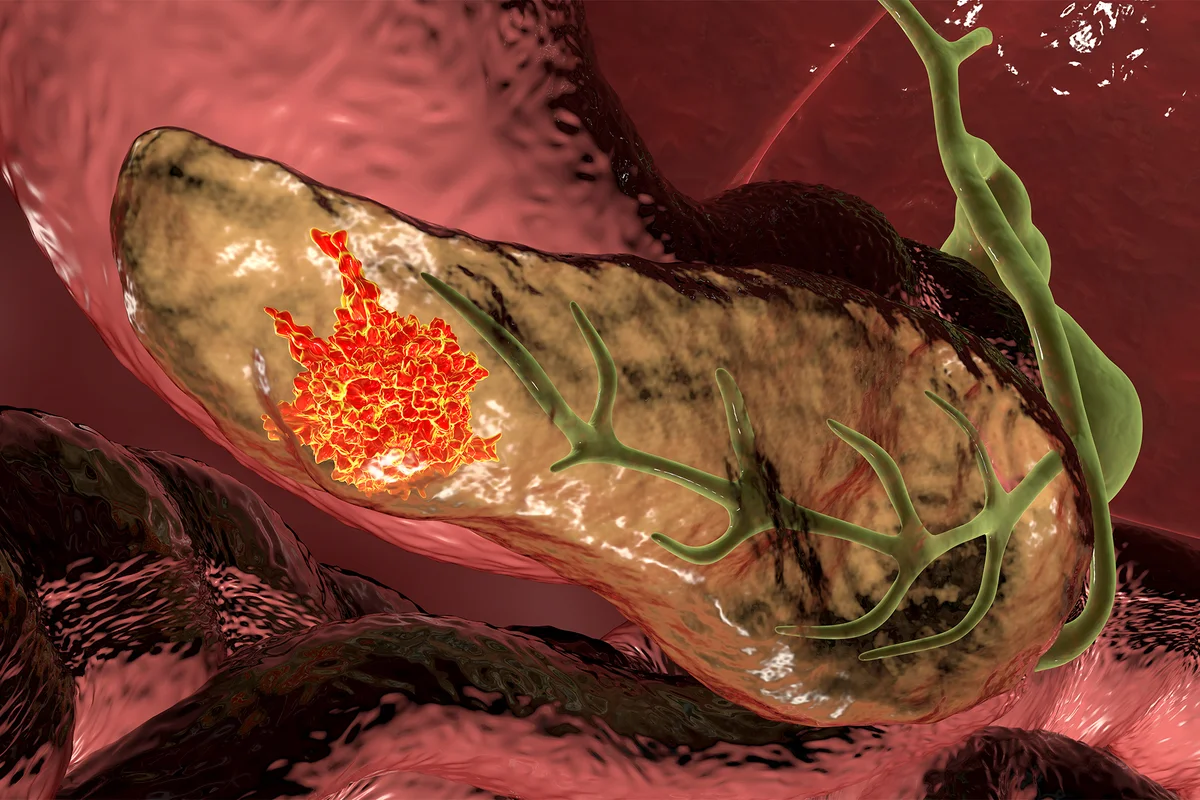People who have lost a family member to pancreatic cancer can now assess their own risk of developing the disease using a new, first-of-its-kind tool.
Pancreatic cancer is notoriously hard to detect in its early stages, leading to a low survival rate. It has the poorest survival rate of all common cancers, with over half of patients passing away within three months of diagnosis.
The Family History Checker aims to identify individuals with an inherited risk of pancreatic cancer and refer them for regular monitoring, offering them a better chance of early diagnosis.
To qualify for inherited risk, a person might have a family history of a genetic condition linked to pancreatic cancer and at least one relative with the disease.
Other criteria include having hereditary pancreatitis or more than one family member diagnosed with pancreatic cancer on the same side of the family.
The checker invites individuals to answer three questions related to their family history of pancreatic cancer, genetic conditions associated with the disease, and pancreatitis.
Based on the responses, those at higher risk may be referred for further assessment through the European Registry of Hereditary Pancreatitis and Familial Pancreatic Cancer (Europac).
Rachel Smith, 42, has experienced the impact of pancreatic cancer firsthand. In 2017, her father, Michael, was diagnosed just before turning 65.
Initially told his condition was terminal, a specialist from another hospital reviewed his case, leading to a life-saving 12-hour surgery.
Three years later, Rachel’s brother, Jim, also developed pancreatic cancer. Due to pandemic-related delays, his cancer progressed from operable to inoperable, and he passed away just eight months after diagnosis.

Following Jim’s death, Ms. Smith sought genetic testing and was invited to undergo annual blood tests, receiving direct contact information for a specialist.
She said, “Being invited for a yearly check-in is reassuring, and it’s comforting to know these programs exist for future generations, including Jim’s children and mine.”
She added, “Jim was diagnosed at 43. Had he been part of a surveillance program, changes in his pancreas might have been detected earlier.
Early involvement in these programs will make a significant difference. If it’s caught too late, there’s nothing that can be done.”
Diana Jupp, CEO of Pancreatic Cancer UK, emphasized the importance of the new tool: “It’s crucial that as many people as possible use the Family History Checker, ensuring that those needing regular monitoring are identified.
The earlier pancreatic cancer is detected, the more likely it is that patients can undergo life-saving treatment. Reaching more people could save lives.”
Each year, approximately 10,500 people in the UK are diagnosed with pancreatic cancer, and research shows that around 10% of cases are inherited.
Pancreatic Cancer UK, the charity behind the checker, noted that roughly 80% of pancreatic cancer patients are diagnosed at later stages when curative treatment may no longer be an option.
The Europac team will assess the cases referred by the checker and determine who should receive annual monitoring, allowing for early detection of changes in the pancreas.
However, the vast majority of people using the tool will not have an increased inherited risk and can be reassured for the first time.
